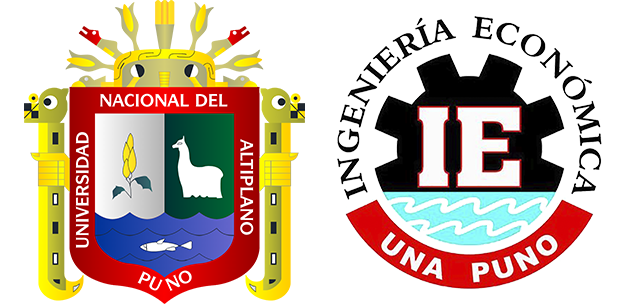Management of the National Rural Sanitation Program and its impact on quality of life: Case of the Yunguyo population centers, Puno, Peru
DOI:
https://doi.org/10.26867/se.2025.v14i1.184Keywords:
Results Chain, Improvement Impacts, Water Services, Rural Basic SanitationAbstract
The results chain is a key tool for explaining how state public services contribute to the creation of public value. The objective of this study was to evaluate the management of the National Rural Sanitation Program (Programa Nacional de Saneamiento Rural –Water and Sanitation Service) and its impact on the quality of life in the population centers of Yunguyo, Puno, Peru. Using a quantitative approach and correlational design, a structured survey was administered to a sample of 285 beneficiary users. The data were analyzed using Spearman’s correlation coefficient, yielding a significant positive correlation (Rho=0.656) between program management and improved quality of life. The results demonstrate the effectiveness of corrective and preventive maintenance activities for the water system, although strengthening water disinfection and quality of life is recommended. In terms of quality, improvements are concentrated in the areas of social inclusion and emotional well-being.
Metrics
References
Acuña-Moraga, O., Severino-González, P., Sarmiento-Peralta, G., & Stuardo-Solar, C. (2022). Sustainable consumption in Chile: an approach to sustainable development goals (SDGs). Información tecnológica, 33(4), 181-190. https://dx.doi.org/10.4067/S0718-07642022000400181
Alarcón, R., Salvador, Y., y Pérez, M. (2020). La cadena de valor público en la evaluación del resultado de la gestión en los gobiernos locales. Avances, 22(3), Instituto de Información Científica y Tecnológica. https://www.redalyc.org/articulo.oa?id=637869117003
Alarcón, R., & Caycho, T. (2015). Relaciones entre gratitud y felicidad en estudiantes universitarios de lima metropolitana. Psychologia: avances de la disciplina, 9(1), 59- 69. https://www.redalyc.org/pdf/2972/297233780004.pdf
Alonso, G. (2008). Marketing de servicios: reinterpretando la cadena de valor. Palermo Business Review. 2, 83-96 https://www.palermo.edu/economicas/pdf_economicas/business_paralela/review/mark eting_servicios.pdf
Asociación Española de Normalización (2011). Catálogo de Normas UNE. Madrid, España. https://repository.uniminuto.edu/bitstream/10656/9922/1/TERLA_AcevedoPrederos Camilo_2019.pdf
Autoridad Nacional del Agua. (2017). Síntesis del informe final del proyecto monitoreo integrado de las metas del ODS 6 relacionadas con agua y saneamiento (GEMI). Lima: Agua. https://www.ana.gob.pe/publicaciones/sintesis-del-informe-final-del- proyecto-monitoreo-integrado-de-las-metas-del-ods6
Banco para el desarrollo de américa latina y el Caribe [CAF] (28 de abril del 2021). Innovación social para mejorar el acceso de agua potable en zonas rurales. https://www.caf.com/es/actualidad/noticias/2021/04/innovacion-social-para-mejorar- el-acceso-a-agua-potable-en-zonas-rurales/
Beltrán, L. F. y Arellanez, J.L. (2020). Calidad psicométrica de la escala “Bienestar subjetivo y condiciones de vida” en adultos mexicanos. Behavioral y Psychology/Psicología conductual, 28(3), 477-497. https://www.researchgate.net/publication/347582755_Calidad_psicometrica_de_la_es cala_Bienestar_subjetivo_y_condiciones_de_vida_en_adultos_mexicanos#fullTextFil eContent
Cairampoma, A. y Villegas, P. (2016). El acceso universal al agua potable. La experiencia peruana. Derecho PUCP, 76, 229–250. https://doi: 10.18800/derechopucp.201601.009.
Castro, R. (2019). Gestión del Programa Nacional de Saneamiento Rural y su influencia en la calidad de vida de las comunidades del distrito de Pinto Recodo 2016. (Tesis de Maestria, Universidad Cesar Vallejo). https://repositorio.ucv.edu.pe/bitstream/handle/20.500.12692/35770/Castro_SR.pdf?se quence=1
Centro Latinoamericano de Administración para el Desarrollo [CLAD] (2007). Modelo abierto de gestión para resultados en el sector público. Revista del CLAD Reforma y Democracia 39, 149-210. https://www.redalyc.org/artículo.or.?id=357533693007
Decreto Legislativo N° 1280, Ley marco de la gestión y prestación de los servicios de saneamiento (28 de diciembre del 2016). https://elperuano.pe/normaselperuano/2016/12/29/1468461-1/1468461-1.htm
Decreto Supremo N° 019-2003-PCM (21 de febrero del 2003). Reglamento de la Ley de demarcación y organización territorial. https://portal.jne.gob.pe/portal_documentos/files/procesoselectorales/Informacion%20 Electoral/consulta_vecinal/Resoluciones/Reglamento%20de%20la%20Ley%20Nº%20 27795.pdf
Durán, J., & Zaclicever, D. (2013). América Latina y el Caribe en las cadenas internacionales de valor, Comisión Económica de América Latina y el Caribe. Serie Comercio Internacional 124. https://www.cepal.org/sites/default/files/publication/files/35879/LCL3767.pdf
García López y García Moreno (2010). La Gestión para Resultados en el Desarrollo: Avances y desafíos en América Latina y el Caribe. https://publications.iadb.org/es/publicacion/16304/la-gestion-para-resultados-en-el- desarrollo-avances-y-desafios-en-america-latina
Hernández, D. (2017). El modelo de la cadena de valor público: la producción pública. Arxé. Política y Gobierno. https://www.researchgate.net/publication/317411826_El_modelo_de_la_cadena_de_v alor_publico_I_la_produccion_publica
Hernández Aja, Agustín. (2009). Calidad de vida y medio ambiente urbano: indicadores locales de sostenibilidad y calidad de vida urbana. Revista INVI, 24(65), 79-111. https://dx.doi.org/10.4067/S0718-83582009000100003
Hilares, M. (2018). Saneamiento Básico Rural y la Sostenibilidad en los Pobladores de la Comunidad de Marcahuasi, Abancay, 2017 (Tesis de Maestría, Universidad César Vallejo, Perú). https://repositorio.ucv.edu.pe/bitstream/handle/20.500.12692/37497/hilares_cm.pdf?se quence=1&isAllowed=y
Instituto Nacional de Estadística e Informática [INEI]. (2020). Perú: Formas de Acceso al Agua y Saneamiento Básico. https://www.inei.gob.pe/media/MenuRecursivo/boletines/boletin_agua_y_saneamient o.pdf
Lupa,T., Quispe, J.C., Enriquez, M.T., y Pilco,C.R. (2022). Presupuesto por Resultados en la Gestión de Inversiones de la Universidad Nacional del Altiplano, periodo 2011-2020. Semestre económico. 11(2), 12-24. https://doi: 10.26867/se.2022.v11i2.134
Martinez, G., Torres, M., & Ríos, V. (2020). El contexto familiar y su vinculación con el rendimiento académico. Revista de Investigación Educativa de la REDIECH, 11. https://www.redalyc.org/jatsRepo/5216/521662150008/html/index.html
Matos, F., Gomez, D., Del Castillo, L., & Gonzáles, J. (2005). Fisioterapeuta del servicio de salud de la comunidad de madrid. Temario. https://books.google.com/books?id=KRmbq6QExWgC&pg=PA433&dq=morbilidad& hl=es-#v=onepage&q=morbilidad&f=false
Matos, Y., Pasek, E., & Rojas, A. (2014). Actividades para favorecer la participación de los padres y representantes en el preescolar. Revista Sustentabilidad al Día., (8), 1-21. http://bdigital.ula.ve/storage/pdf/resustenta/n3/art06.pdf
Meeberg, G.A. (1993). Quality of life: A concept analysis. Journal of Advanced Nursing, 18, 32 - 38. https://doi.org/10.1046/j.1365-2648.1993.18010032.x
Ministerio de Economía y Finanzas (2021). Guía para el cumplimiento de la meta 5 del Programa de Incentivos a la Mejora de la Gestión Municipal 2021. https://www.mef.gob.pe/contenidos/presu_publ/migl/metas/guia_Meta_5_PI_2021 .pdf
Ministerio de Vivienda Construcción y Saneamiento. (2021). Análisis de cumplimiento de la actividad 5. https://www.mef.gob.pe/contenidos/presu_publ/migl/municipalidades_pmm_pi/meta5 _6_Limpieza_y_desinfeccion_de_los_sistemas.pdf
Municipalidad Provincial de Junin. (2021). Manual de operación y mantenimiento de agua potable y saneamiento. http://minos.vivienda.gob.pe:8081/Documentos_SICA/modulos/FTA/SECCIONIV/4. 14/ 87927230_manual de oym.pdf
Organización Mundial de la salud y el Fondo de las Naciones Unidas para la Infancia [UNICEF], (2017). Progresos en materia de agua potable, saneamiento e higiene: Informe de actualización de 2017 y línea de base de los ODS. Ginebra. https://data.unicef.org/resources/progress-drinking-water-sanitation-hygiene-2017- update-sdg-baselines/
Organización para la Cooperación y el Desarrollo Económicos [OCDE] – y Banco Mundial (2005). Libro de consulta sobre buenas prácticas recientemente identificadas de Gestión Para Resultados en el Desarrollo. París: OCDE. https://www.oecd.org/dac/effectiveness/36853632.pdf
Organización Mundial de la Salud (1998). Guías para la calidad del agua potable. Ginebra http://apps.who.int/iris/bitstream/handle/10665/41985/9243545035- spa.pdf;jsessionid=86188F0B80D87EB4AABC1AFA80A215FB?sequence=1
Palomino, M. R. (2021) Impacto de la Gestión por Resultados en la calidad de servicio de la administración educativa. Centro Sur Social Science Journal. E4, 246-261 https://www.centrosureditorial.com/index.php/revista/article/view/121/482
Pardo, C., & Vásquez, S. (2007). Calidad de vida y movilidad social: El caso del acceso a los servicios públicos en Bogotá. Papel Político, 12(1), 39-62. http://www.scielo.org.co/scielo.php?script=sci_arttext&pid=S0122- 44092007000100003&lng=en&tlng=es.
Reyes - Masa, B. del C., Carrión Berrú, C. B., Rodríguez Delgado, Y., & Cabrera - Aguirre, V.H. (2021). Indicadores de vulnerabilidad y calidad de vida de los estudiantes de la Universidad Nacional de Loja. Ciencia Latina Revista Científica Multidisciplinar, 5(3), 3136-3148. https://doi.org/10.37811/cl_rcm.v5i3.518
Rojas, A., Chung, P., & Correa, D.A. (2022). Servicios urbanos para la construcción de resiliencia en los espacios públicos de tipo abierto en México. Vivienda y Comunidades Sustentables, (11), 23-49. https://doi.org/10.32870/rvcs.v0i11.178
Schwartzmann, L. (2003). Calidad de vida relacionada con la salud: aspectos conceptuales. Ciencia y enfermería, 9(2), 09-21. https://dx.doi.org/10.4067/S0717- 95532003000200002
Sotelo, A. J. (2012). La cadena de valor público: un principio ordenador que previene la colisión metodológica. Revista ASIP, 80(1), 15-26. https://content.lpderecho.pe/wp- content/uploads/2022/11/Cadena-de-valor-p%C3%BAblico-Anibal-Sotelo.pdf
Urzúa, A. & Caqueo-Urízar, A. (2012). Quality of life: A theoretical review. Terapia psicológica, 30(1), 61-71. https://dx.doi.org/10.4067/S0718-48082012000100006
Valdés, I., Guerra, S., y Camargo, M. (2020). Las habilidades de interacción social: un puente hacia la inclusión. MENDIVE 18(1), 76-91. http://mendive.upr.edu.cu/index.php/MendiveUPR/article/view/1646















